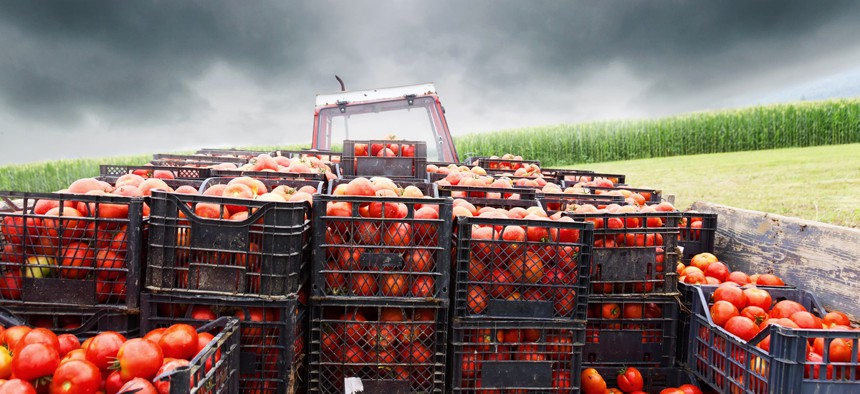FDA Unveils Next Step on its Journey to Develop a Safer Food System

Brilliant Eye/Shutterstock.com
Insiders say it’s time to leverage emerging technologies and innovative approaches to strengthen and protect food traceability across America.
The Food and Drug Administration introduced earlier this year a modernization initiative—deemed “A New Era of Food Safety”—to advance its use of evolving technologies like blockchain and artificial intelligence to better trace America’s food supply and provide more rapid responses to outbreaks of foodborne illness. This week, FDA announced that the next step on its journey to innovation will be a full-day event through which the public will help plan out its blueprint and provide feedback on the agency’s implementation of the new approach.
“The New Era of Smarter Food Safety will enhance the agency’s ongoing efforts to implement the FDA Food Safety Modernization Act by creating a more digital, traceable, and safer system to help protect consumers from contaminated food,” officials said in a public meeting notice published in the Federal Register Wednesday. “The purpose of this meeting is to foster a dialogue with our domestic and international regulatory and public health partners, industry, consumers, academia, and others.”
Since FSMA was signed into law eight years ago, the agency said it’s established necessary science- and risk-based standards and regulations around the production and transportation of the nation’s critical food resources. It’s also leveraged budding technological tools, including whole genome sequencing, to enhance its food safety practices.
“However, a lot has changed since 2011,” the agency said. “When it comes to food traceability, many in the food system still utilize a largely paper-based system of taking one step forward to identify where the food has gone and one step back to identify the source.”
Throughout the initiative, FDA will consider technology like distributed ledgers and internet of things sensors, along with innovative e-commerce approaches that are being implemented across the global nutritional landscape, to evaluate how it can build off of the emerging techniques to bring more transparency and safety to the food humans consume in an increasingly interconnected world. It will also create a blueprint that outlines its plan for solutions. In June, the agency’s Deputy Commissioner for Food Policy and Response, Frank Yiannas, said FDA’s strategy will be FSMA-based, people-led and technology-enabled.
“We have to ask ourselves, can this digital revolution help improve food safety? And the answer is ‘yes,’” he said during a keynote in Washington. “Smarter food safety for us isn't a tagline, but it’s this idea that we will increasingly look at new technology and new digital tools to help us.”
The full-day event will unite officials from food companies and technology firms “of all sizes,” as well as insiders from the private sector and state, territorial, local and federal agencies in Rockville, Maryland on Oct. 21. It will begin with a plenary session followed by breakouts through which attendees will discuss topics like data streams and other tech that will shorten the time it takes to trace food products to their source, as well as how they can strengthen food safety culture throughout the supply chain, from farm to transport to store shelves.
In the announcement, the agency also lays out a series of 18 questions for the public to weigh in on regarding evolving technologies that can help them trace contaminated foods, how they can provide better communication during contamination outbreaks, nascent business models that could challenge food safety across the nation and models for how they can enhance the culture around food safety both on farms and in retail locations.
“There will be significant innovation in the agriculture, food production, and food distribution systems in the next 10 years, which will continue to provide an even greater variety of food sources, food ingredients, and delivery conveniences for American consumers,” the agency said. “With this ever-changing landscape, FDA must continue preparing to take advantage of new opportunities and address potential risks.”
The deadline to send comments regarding the solicitation and discussion is Nov. 20. Those interested in attending the event must register by Oct. 11 and individuals who would like to make an oral presentation during the meeting should submit a request to do so by Oct. 2.






